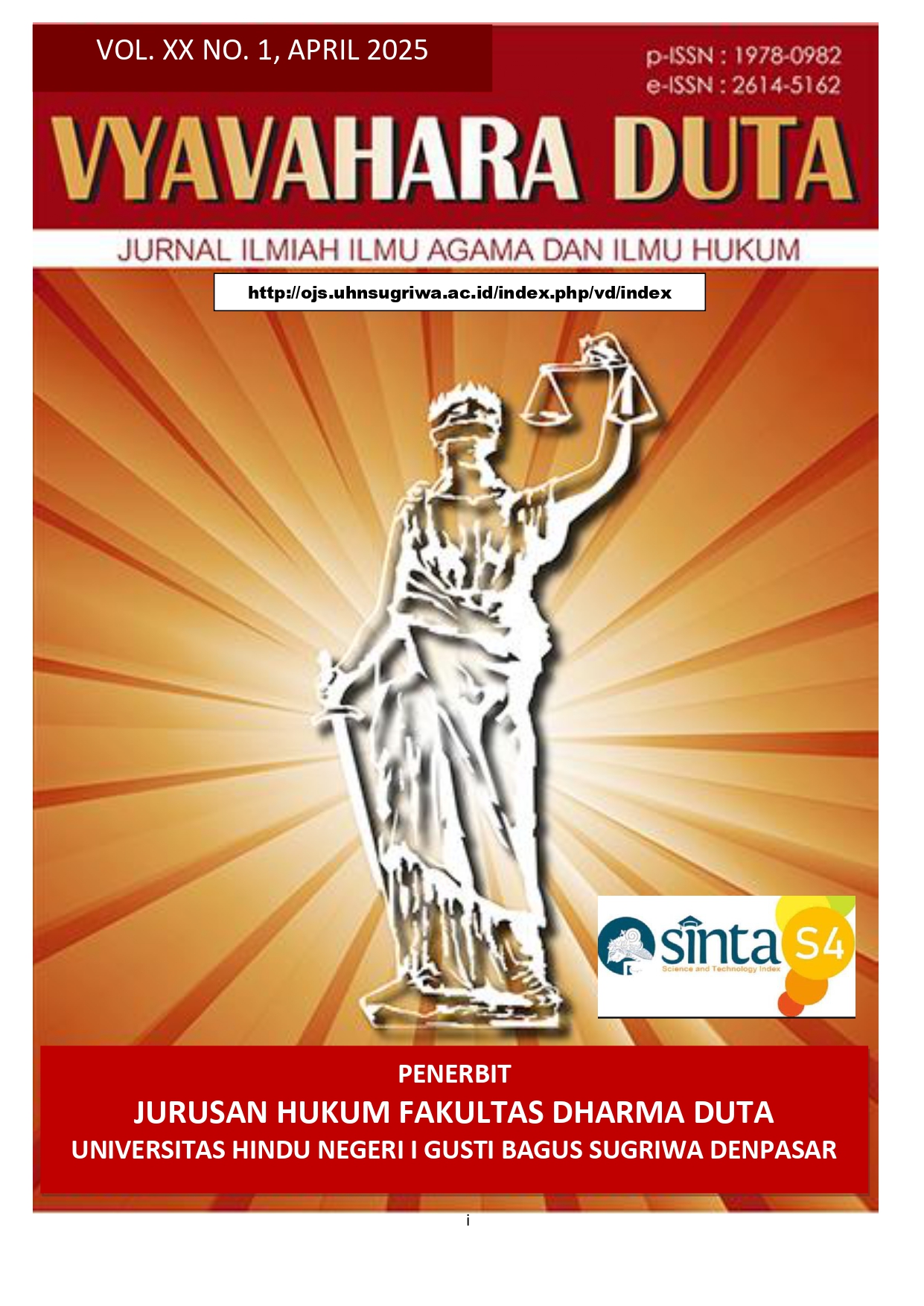JURIDICAL ANALYSIS OF THE REGULATION OF PERIODIZATION RESTRICTIONS OF THE HOUSE OF REPRESENTATIVES OF THE REPUBLIC OF INDONESIA IN GUARANTEEING A LAW-ABIDING SOCIETY
DOI:
https://doi.org/10.25078/vyavaharaduta.v20i1.4569Abstract
The regulation of term limits for state institutions is an essential component in building a democratic national political system. In Indonesia, such term limits have been implemented for the President, Vice President, and Justices of the Constitutional Court, but not for members of the House of Representatives (Dewan Perwakilan Rakyat, DPR). The absence of term limit regulations for DPR members is evident in the 1945 Constitution of the Republic of Indonesia (UUD NRI 1945), Law No. 7 of 2017 on General Elections, and Law No. 2 of 2011 on Political Parties. This study aims to examine the urgency of imposing term limits on DPR members as a means to strengthen democratic principles and create a more equitable constitutional system. The research employs a normative legal method, focusing on legal principles, norms, rules, court decisions, agreements, and legal doctrines. The findings indicate that setting term limits for DPR members is crucial to prevent the concentration of power by individuals or groups, uphold equality and fairness in state life, and foster the regeneration of ideas and policy innovation within the legislative body. Through such limitations, it is expected that a legal system more responsive to societal dynamics will emerge, thereby enhancing citizen participation in democratic governance. Consequently, regulating the periodic tenure of DPR members constitutes a strategic step toward establishing a law-abiding society and a healthier constitutional order.











